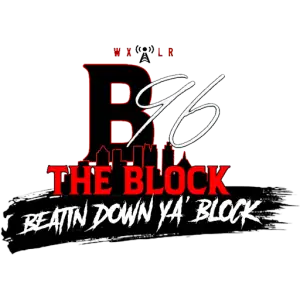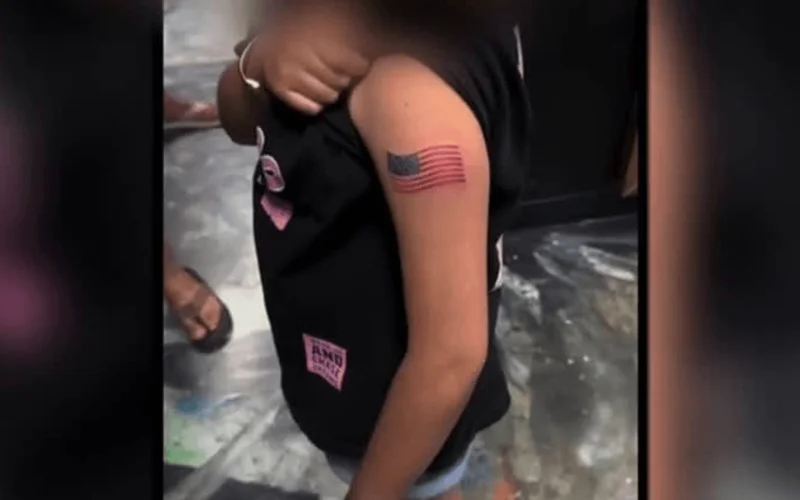Sosa, co-owner of Black Onyx Empire Tattoo in Yuma, Arizona, is at the center of a heated debate after tattooing an American flag on a 9-year-old girl’s arm. While tattooing minors is a controversial and legally restricted practice in many areas, Sosa insists that he acted in the child’s best interest and opposes tattooing minors as a general principle.
This incident has sparked intense backlash from the public, with many questioning the ethical and legal boundaries of tattooing children, even with parental consent.
What Happened? The controversy began when photos of the 9-year-old girl’s tattoo—a small, patriotic American flag—surfaced on social media. According to Sosa, the decision was not made lightly. He claims the child’s parents were present and consented to the tattoo, and that he took precautions to ensure the child’s safety and comfort.
Sosa’s explanation: “This wasn’t about breaking rules or being reckless. It was about honoring a family’s request in what they described as a deeply meaningful moment. That said, I don’t believe minors should be tattooed as a general practice.” Critics have been quick to condemn the act, arguing that tattooing minors is irresponsible, both ethically and medically. Many point out that children are too young to understand the permanence of tattoos, and their bodies are still growing, which can distort the ink over time.
Social media users expressed outrage, with some calling for legal action:
– “A 9-year-old can’t even decide what they want for lunch, let alone a permanent tattoo!”
– “This sets a dangerous precedent for body modifications on kids.”
The legality of tattooing minors varies by state. In Arizona, tattooing anyone under 18 is illegal unless a parent or legal guardian provides explicit consent and is present during the procedure. Despite meeting these conditions, critics argue that such consent doesn’t justify tattooing someone so young. Sosa’s actions could still lead to investigations by local authorities or health departments, depending on the interpretation of Arizona law and community standards.
Sosa’s Stance on Tattooing Minors
Interestingly, Sosa has publicly stated his opposition to tattooing minors in general. He claims this situation was an exception, made after extensive discussions with the child’s parents.
“I stand by my belief that minors should not get tattoos. This was a unique circumstance, and my intent was never to promote or normalize tattooing children.”
While the majority of responses have been critical, some supporters argue that it’s ultimately a family decision:
– “If the parents agreed and were there, why are we so quick to judge? It’s their child, their rules.”
– “There are worse things happening to kids. Let’s focus on those issues instead of one tattoo.”
The incident has reignited conversations about tattooing laws and ethics, particularly concerning minors. Advocates are calling for stricter regulations, clearer guidelines, and greater accountability for tattoo artists.
For Sosa and Black Onyx Empire Tattoo, the controversy serves as a reminder of the delicate balance between honoring personal requests and adhering to ethical and professional standards.
As the debate continues, one thing is clear: this situation has sparked necessary discussions about boundaries, consent, and the role of tattoo artists in navigating sensitive scenarios.






















